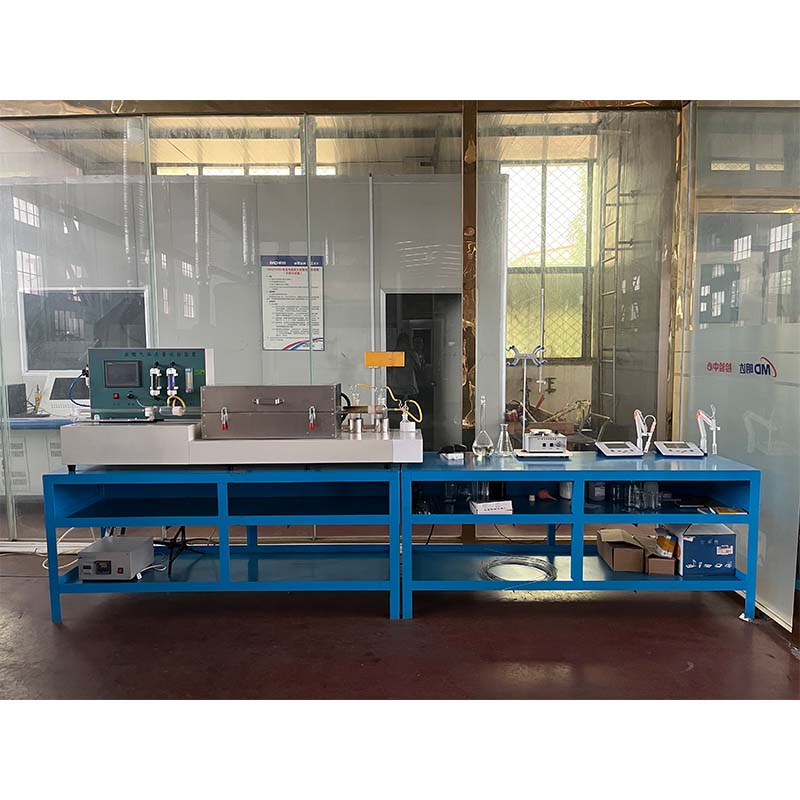universal tensile tester company
Universal Tensile Tester Company Pioneering Quality and Precision in Material Testing
In the realm of material science and engineering, the ability to accurately measure the tensile properties of materials is paramount. Tensile testing is a fundamental process used across various industries—including construction, manufacturing, aerospace, and automotive—to determine a material’s strength, ductility, and overall performance under stress. Central to these operations is the universal tensile tester, a sophisticated piece of equipment designed to facilitate accurate and reliable testing. This article will delve into the significance of the universal tensile tester, highlighting the contributions of leading companies in this field, their advanced technologies, and the importance of material testing for quality assurance.
What is a Universal Tensile Tester?
A universal tensile tester is a device used to apply controlled tensile force to a material specimen until it fractures or deforms. This machine can perform various tests, including tensile, compression, bend, and shear tests, making it universal in its application. The tester provides crucial data, such as yield strength, ultimate tensile strength, elongation, and reduction of area. These parameters are vital for understanding the material's durability and functionality in real-world applications.
The Role of Universal Tensile Tester Companies
Companies dedicated to manufacturing universal tensile testers play a crucial role in ensuring that various industries can maintain high standards of quality and safety. They invest heavily in research and development to innovate and improve testing machines, ensuring they meet ever-evolving industry standards. Several key players in the market specialize in producing high-performance tensile testers equipped with advanced features, such as
1. Automated Testing Processes Automation improves efficiency, reduces human error, and ensures that tests are conducted uniformly. Many modern testers come with programmable software that can execute a series of tests with minimal operator involvement.
2. High-Precision Load Cells These components are fundamental in measuring the forces applied to the specimen. Top companies utilize state-of-the-art load cells that offer superior accuracy and reliability, crucial in research and quality control.
3. Data Acquisition Systems Advanced tensile testers are equipped with sophisticated data acquisition systems that record and analyze test results in real-time. This feature allows engineers to quickly assess material properties and make informed decisions.
4. User-Friendly Interfaces As technology advances, so does user experience. Many manufacturers focus on creating intuitive software interfaces that simplify operation and data interpretation, making it accessible to users of all skill levels.
universal tensile tester company

5. Comprehensive Material Range Testing A prominent feature of universal tensile testers is their ability to test a wide range of materials, from metals and plastics to composites and textiles. This versatility is essential for industries that work with diverse materials.
Importance of Material Testing
The significance of material testing cannot be overstated, particularly in fields where material failure can lead to catastrophic consequences. Ensuring that materials conform to specified standards helps prevent failures and enhances the longevity of products. Here are a few key points that underscore the importance of using universal tensile testers
1. Safety Assurance In industries such as aerospace and construction, safety is paramount. Regular testing ensures that materials used in critical applications can withstand the stresses they will face throughout their lifecycle.
2. Quality Control Manufacturers utilize tensile testing as part of their quality control process. By testing incoming raw materials and finished products, they can ensure consistency and compliance with industry standards, which is crucial for maintaining brand integrity.
3. Innovation and Development Research and development teams rely on tensile testing to refine materials and develop new products. Understanding material behavior under various conditions allows engineers to innovate effectively.
4. Compliance with Regulations Many industries are governed by strict regulatory requirements regarding material properties. Universal tensile testers help manufacturers ensure compliance, thus avoiding legal repercussions and potential recalls.
Conclusion
The universal tensile tester is an indispensable tool in modern manufacturing and research, contributing significantly to safety, quality assurance, and innovation. Leading companies in this sector continue to advance technology, enhancing the capabilities of testing equipment to meet the demands of an evolving market. As industries strive for excellence and compliance, the role of universal tensile testers remains pivotal, underscoring the importance of precision in material testing for a safer and more efficient future. In an age of rapid innovation, these machines will continue to be at the forefront of material research, ensuring that the materials we rely on are both safe and effective.
-
Why the Conductor Resistance Constant Temperature Measurement Machine Redefines Precision
NewsJun.20,2025
-
Reliable Testing Starts Here: Why the High Insulation Resistance Measuring Instrument Is a Must-Have
NewsJun.20,2025
-
Flexible Cable Flexing Test Equipment: The Precision Standard for Cable Durability and Performance Testing
NewsJun.20,2025
-
Digital Measurement Projector: Precision Visualization for Modern Manufacturing
NewsJun.20,2025
-
Computer Control Electronic Tensile Tester: Precision and Power for the Modern Metal Industry
NewsJun.20,2025
-
Cable Spark Tester: Your Ultimate Insulation Assurance for Wire and Cable Testing
NewsJun.20,2025
 Copyright © 2025 Hebei Fangyuan Instrument & Equipment Co.,Ltd. All Rights Reserved. Sitemap | Privacy Policy
Copyright © 2025 Hebei Fangyuan Instrument & Equipment Co.,Ltd. All Rights Reserved. Sitemap | Privacy Policy
